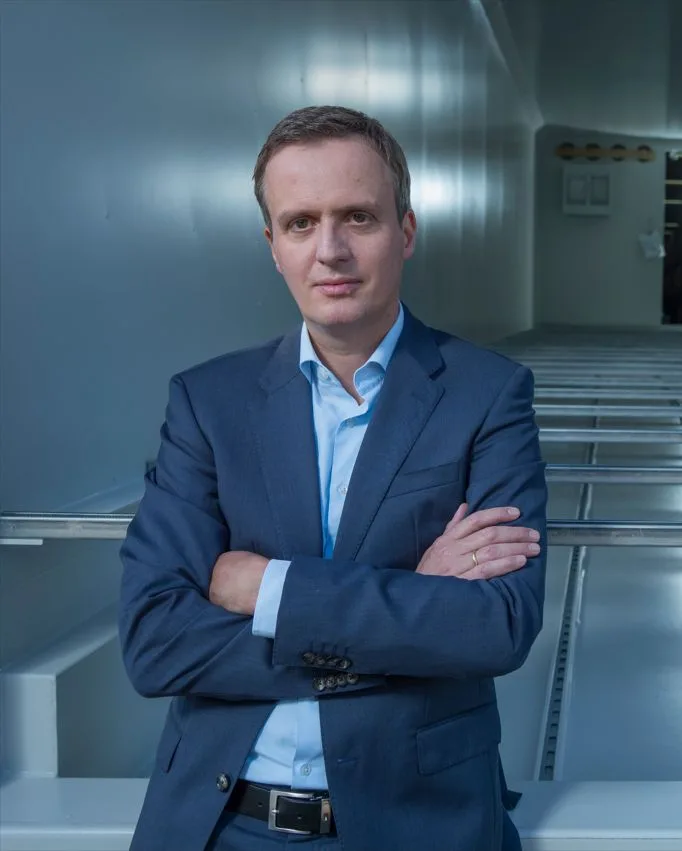Martin Kipping is a veteran of the global data center industry. He has over two decades of professional experience transforming IT infrastructure for enhanced performance and profitability. Martin is at the center of on-premise and edge computing in mission-critical environments.
Martin’s role in the development of modular building blocks for IT containers and his successful execution of multi-million Euro projects underscore his ability to conceive and implement innovative solutions for data centers. Jonas Mcgrath sat down with Martin for an exclusive interview.
Jonas: Martin, after more than 24 years in the data center industry, what motivated you to focus on optimizing efficiency for small and medium-sized IT projects?
Martin Kipping: Over the years, I’ve observed untapped potential for improvement in how small and medium-sized companies can enhance their performance and profitability within the realm of project business. Recognizing this, I believe there are strategic steps that can significantly impact the entire lifecycle of design-and-build projects.
Jonas: Let’s delve deeper into how this focus on efficiency translates into the practical execution of projects. Can you walk us through the typical stages of a design-and-build project and where you see opportunities for optimization?
Martin Kipping: Certainly, Jonas. From Sales to Handover, there are several critical stages – Sales, Engineering, Calculation, Quotation, Negotiation, Order, Deployment, Project Management, Installation, Training, and Handover. One significant opportunity for optimization lies in the early identification of valuable opportunities during the Sales and Engineering stages through robust “Bid-/No-Bid” criteria. This ensures resource allocation to realistic and worthwhile pursuits.
Jonas: Given the importance of early stages in identifying opportunities, how does procurement play a role in enhancing the commercial aspect of projects?
Martin Kipping: After the engineering team’s engagement with the customer, a technical concept and Bill of Materials (BOM) are established. The next level of optimization involves bringing procurement into play. By qualifying vendors through an audit process, we can set up reliable partnerships, ensuring competitive quotes from multiple suppliers. This not only enhances the project’s chances of success but also mitigates risks through diversified supply chains.
Jonas: Moving forward in the project lifecycle, the appointment of a project manager becomes crucial. Could you elaborate on the role of a dedicated project manager and the significance of claim management in ensuring financial success?
Martin Kipping: Certainly. Once a project is awarded, it’s crucial to appoint a dedicated project manager as the Single Point of Contact (SPOC). This individual oversees project deployment, coordinating internal processes, third-party suppliers, logistics, and the installation team. Strong communication and problem-solving skills are essential. The project manager ensures adherence to the calculated budget and, when necessary, engages in effective claim management to safeguard financial success when customer demands change.
Jonas: Beyond the immediate project execution, maintenance capabilities also play a critical role. How do they contribute to a project’s success and foster long-term relationships with customers?

Martin Kipping: Maintenance capabilities are vital for ensuring the functionality of systems, especially in mission-critical applications. Beyond functionality, they also contribute to building lasting customer relationships after the initial installation. With a developed base of projects, recurring service revenue becomes a valuable business component, offering good margins and additional opportunities for modernizations, replacements, and new builds.
Jonas: With a focus on the lifecycle of a project, maintaining control over costs is essential. How do you recommend companies manage this aspect effectively across different project stages?
Martin Kipping: Cost control is paramount, and I advocate for at least four different project calculations: budgetary, final, execution, and post-project. The first two are crucial during sales processes, while the latter two come into play during and after project execution. The post-project calculation is particularly significant as it reveals whether the desired margin was achieved. Professional lessons learned from successes and failures contribute to ongoing performance optimization, risk mitigation, and increased profitability.
Jonas: As we discuss the overarching aim of project management, could you share your insights on the ultimate goal of project business and how companies can achieve it?
Martin Kipping: Absolutely. The ultimate goal of project business is profitability. No one wants to lose money. To achieve this, it’s essential to maintain control over costs at every project stage. Companies can optimize performance and ensure a happy customer by analyzing successes and failures through a professional lesson-learned process.
Martin Kipping’s approach of emphasizing efficiency, scalability, and strategic growth addresses current industry needs while anticipating future challenges. The world consumes data at an increasing rate, and Kipping’s work developing IT containers and modular data centers is at the heart of the rapid digital transformation.
About the Author


